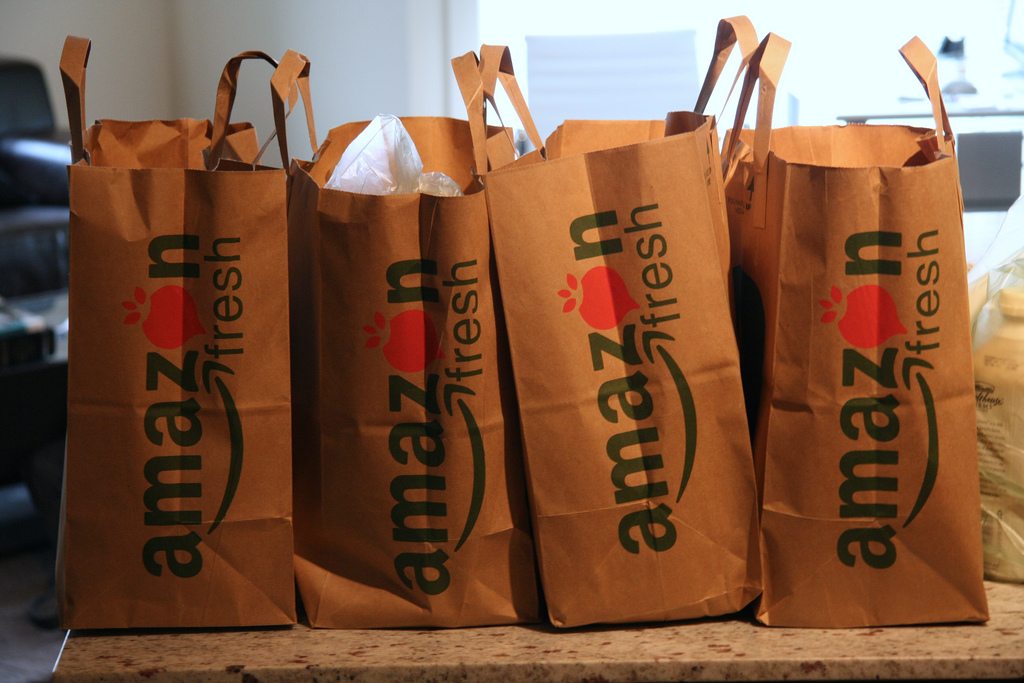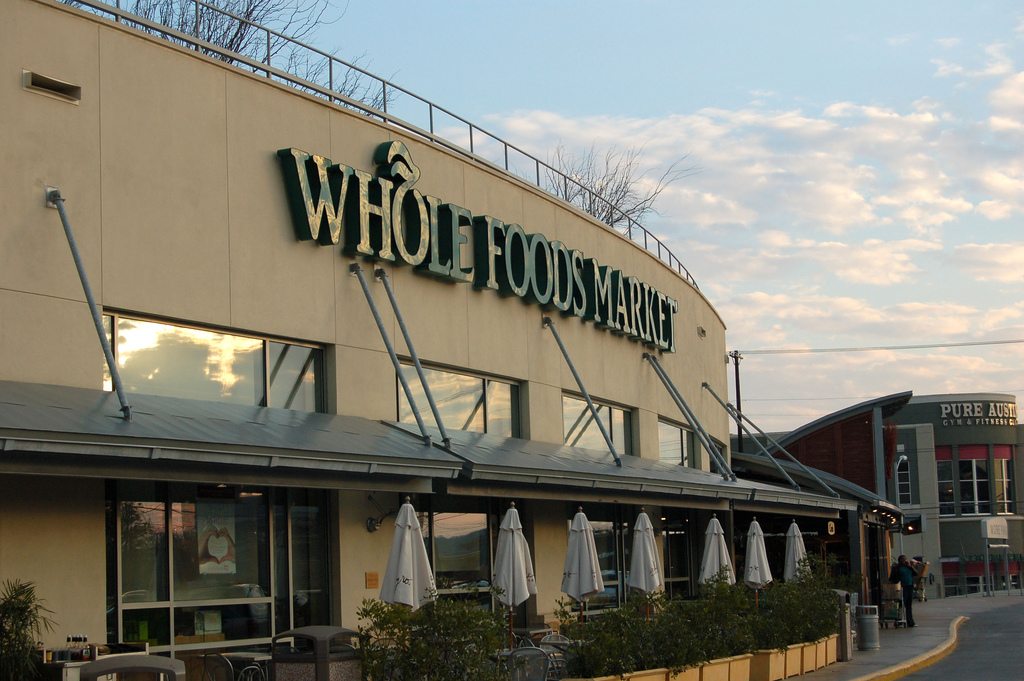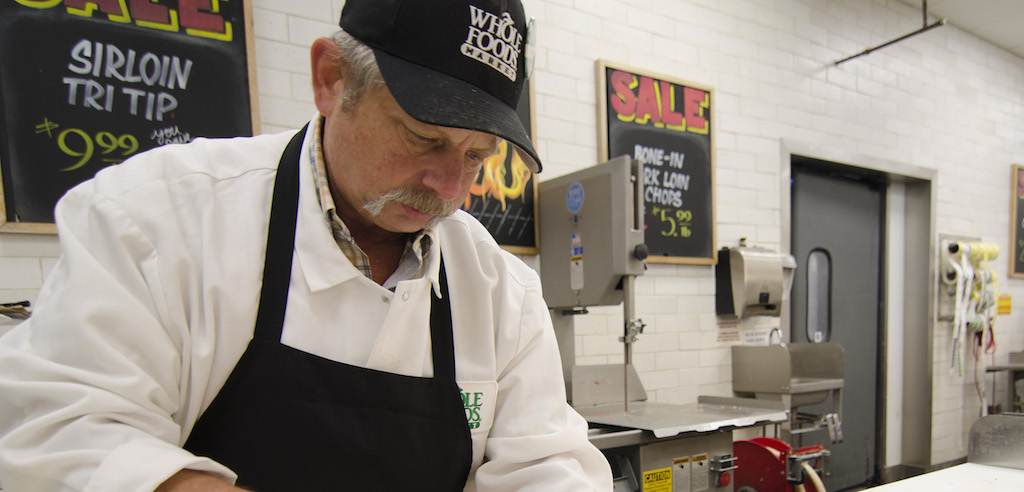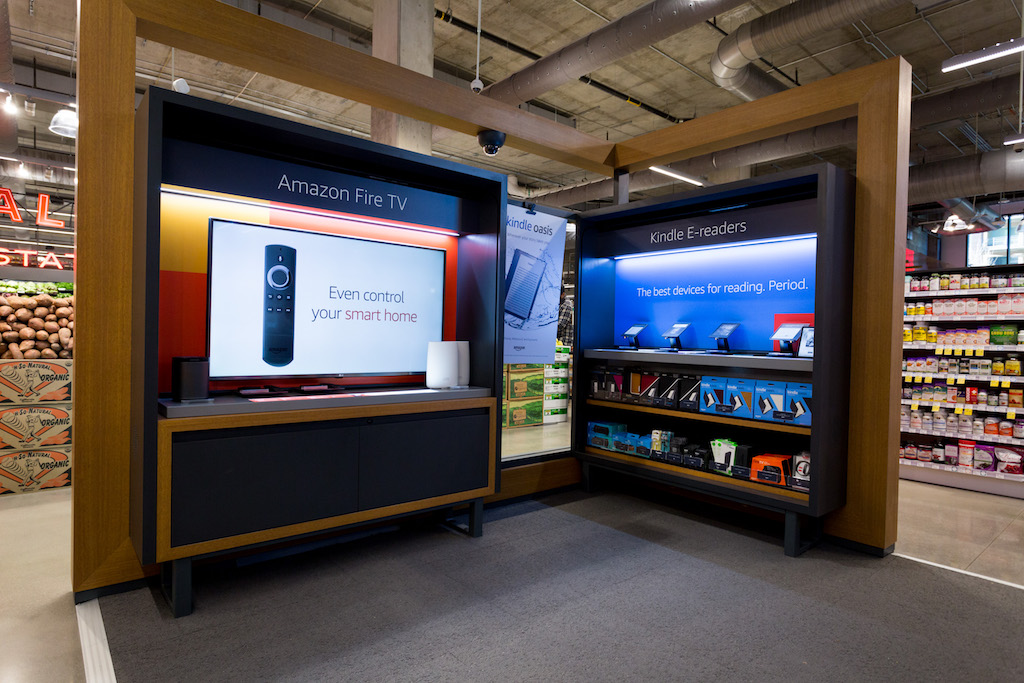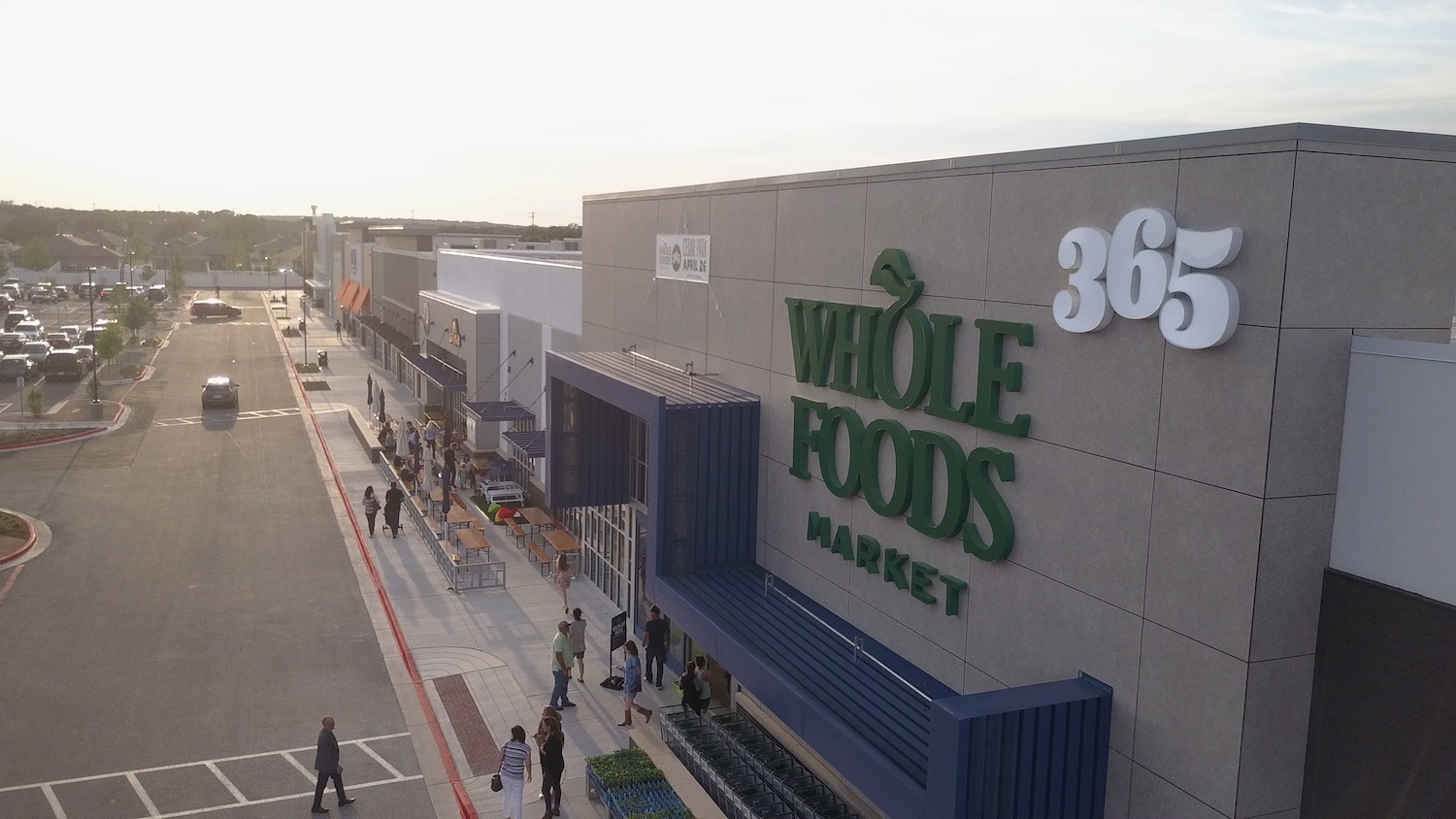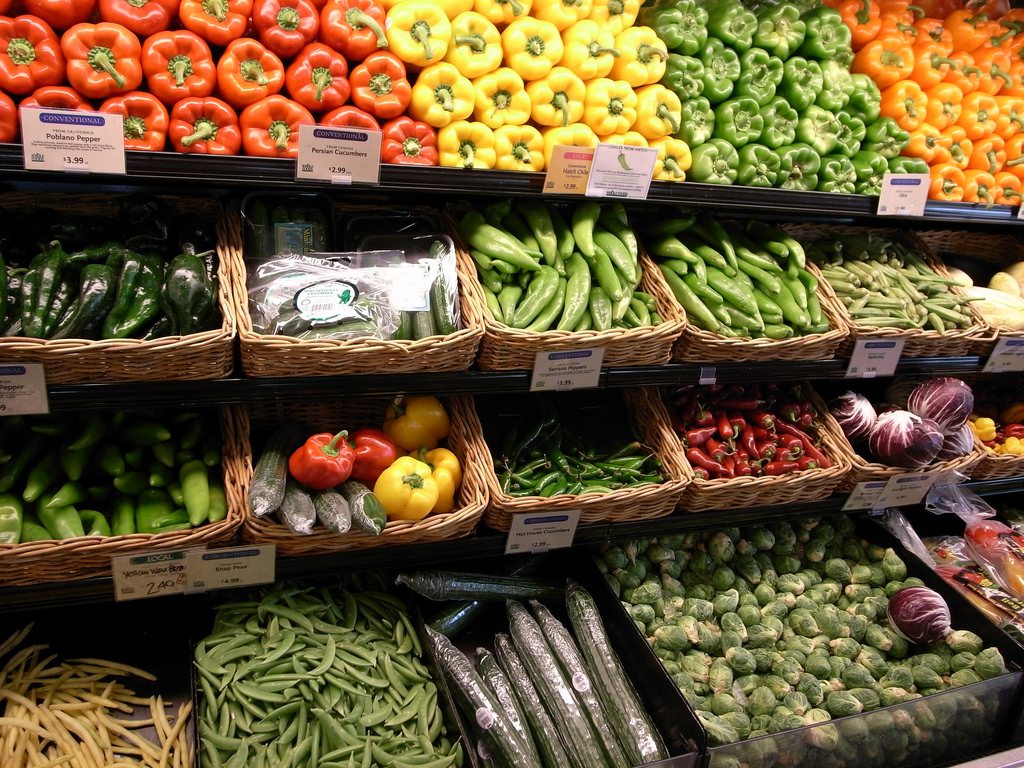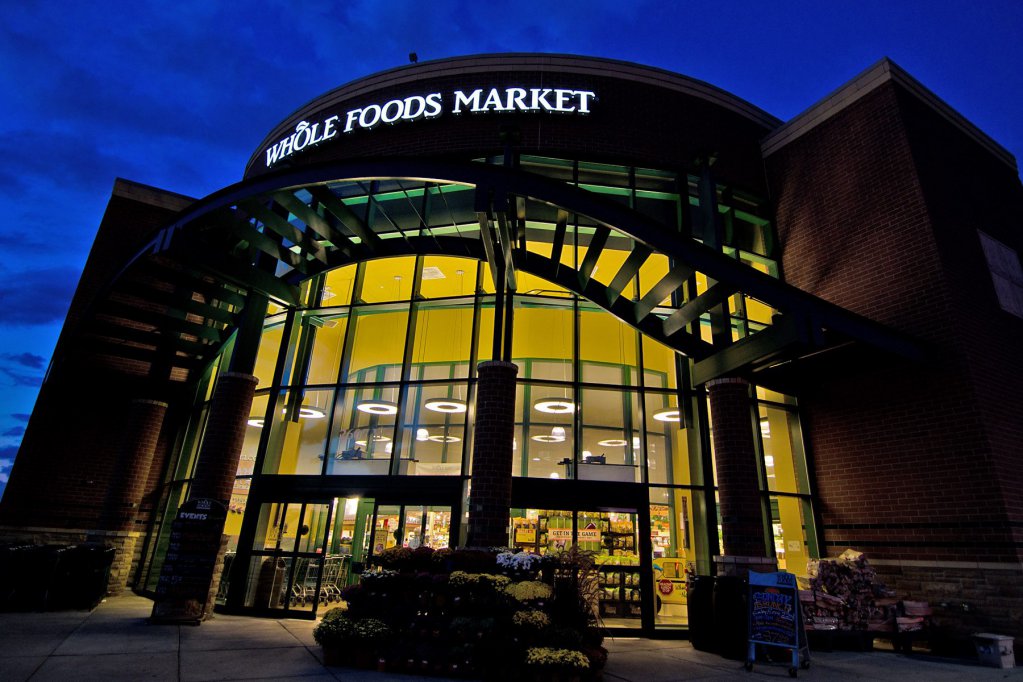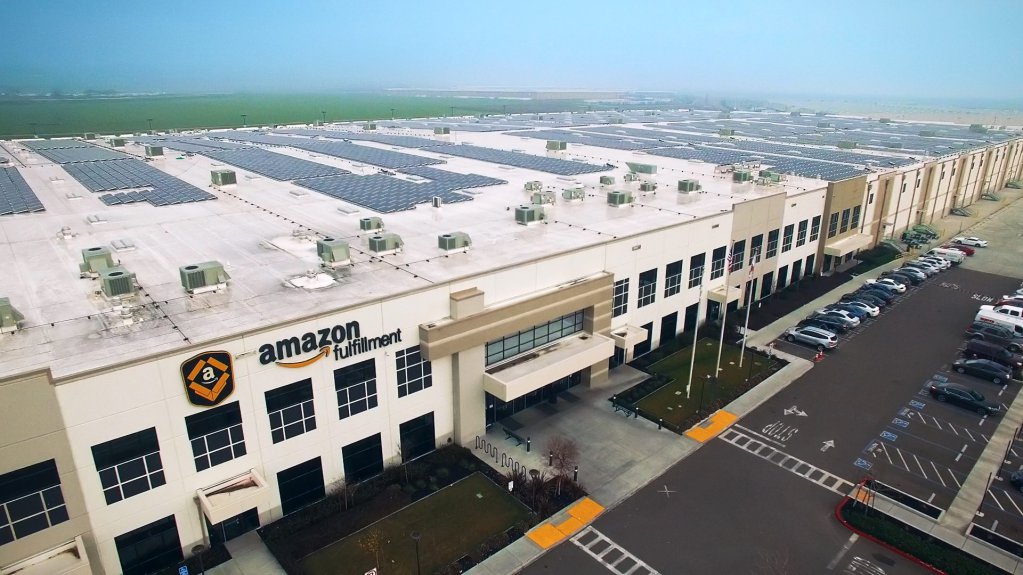
Amazon
On Wednesday, Amazon’s acquisition of Whole Foods became inevitable: The Federal Trade Commission stated that it would not block the sale, and the grocery chain’s shareholders voted to let the deal go through. Now, in a press release this morning, Amazon has announced its expectation to assume full control of Whole Foods on next Monday, August 28th—along with a series of strategic moves likely to shake the grocery industry to its core.
In its statement, the company announced an immediate intention to attack what has long been Whole Foods’ greatest vulnerability: high prices. Starting Monday, the grocery chain will offer discounts on a range of kitchen staples, from organic bananas and eggs to farmed salmon and ground beef. Judging from the press release, it sounds like these are not temporary, promotional discounts, but part of a longer-term plan to make Whole Foods a place where everyone can shop.
“We’re determined to make healthy and organic food affordable for everyone. Everybody should be able to eat Whole Foods Market quality—we will lower prices without compromising Whole Foods Market’s long-held commitment to the highest standards,” said Jeff Wilke, CEO of Amazon Worldwide Consumer, in the release.
We’ve seen Amazon use its vast financial resources to artificially suppress its prices before, losing money in order to consolidate market share. The same thing may happen here, though there’s reason to believe Amazon could also provide real savings in this case: The company is not just a retailer but a logistics company, one of the biggest in the world. Its delivery infrastructure may help Whole Foods achieve efficiencies that would otherwise have been impossible.
“It’s been our mission for 39 years at Whole Foods Market to bring the highest quality food to our customers,” said John Mackey, Whole Foods Market co-founder and CEO, in the release. “By working together with Amazon and integrating in several key areas, we can lower prices and double down on that mission and reach more people with Whole Foods Market’s high-quality, natural and organic food.”
Amazon also laid out plans to fully integrate both brands, starting with today’s promise to offer Whole Foods discounts to Amazon Prime members as soon as possible. (It will take a little while to integrate its e-commerce platform with the grocery store’s point-of-sale system.) Amazon now gets to dangle Whole Foods discounts—as well as free two-day shipping and the latest season of Transparent—to lure new subscribers, using the grocery chain’s considerable brand power to win people over to its thriving $99-per-year membership.
Amazon followed a similar playbook in its hostile takeover of the book industry: It undercut competitors on cost, while simultaneously offering customers new, ever-easier ways to buy. The twin siren songs of cheapness and convenience proved irresistible to consumers then, and Amazon quickly consolidated market share. The same may happen here.
But Amazon is not getting just a grocery business with a marquis brand. The sale also provides the company with access to one thing it currently lacks: plush brick-and-mortar real estate all over the country. Today’s statement showed this point as well has not been lost on Amazon. The company announced its immediate intention to bring Amazon Lockers to Whole Foods locations everywhere, meaning that the grocery stores will also act as depots where Prime members can pick up non-grocery goods ordered online.
I argued a few weeks ago that Amazon would take an active approach to managing Whole Foods’ brand and supply chain: a secret meeting with grass-fed beef producers was an early signal that the company had big, disruptive plans. But today’s announcement is nonetheless surprising for its ambition, audacity, and ruthlessness. Today’s grocery executives struggle with two challenges: competing with Walmart on price, and earning loyalty in an ever-more-fractured marketplace. Clearly, Amazon plans to attack them on both fronts.
Make no mistake, the company’s statement today is the beginning of a shock and awe campaign, the first volley in a war on the grocery industry as we know it.
As of 3:30 PM this afternoon, grocery stocks were in a tailspin. Kroger is down 7.64 percent, while Sprouts Farmers Market has lost 6.91 percent. Meanwhile, the organic/natural distributor United Natural Foods, traditionally Whole Foods’ main supplier—whose fate is now uncertain—was down 4.61 percent.
Not bad, considering that day one—Monday—is still a weekend away.
“This is just the beginning,” the company said, in its statement.

